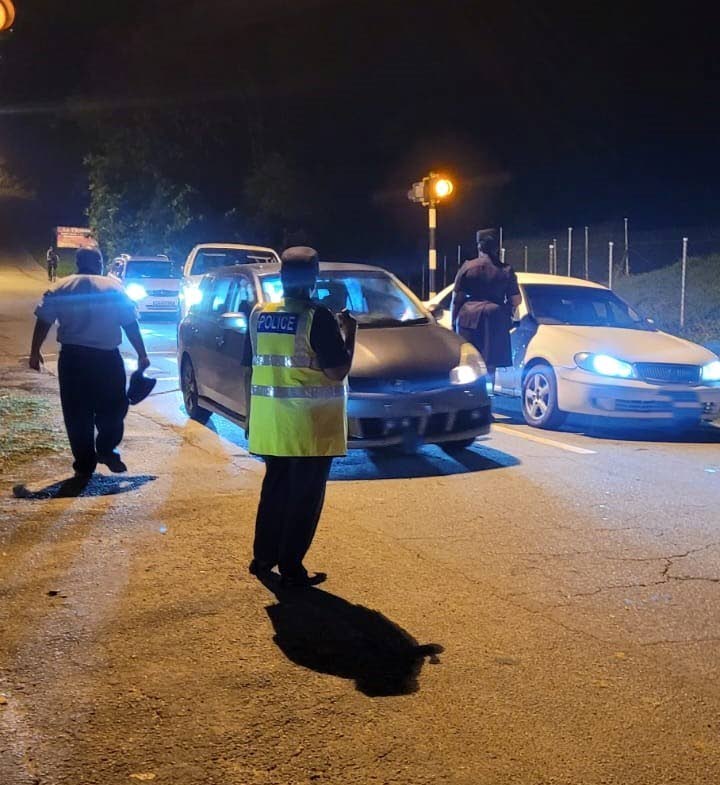SoE: A nation in crisis

PAUL SARRAN
THE GOVERNMENT has declared a state of emergency (SoE) to address the sharp escalation in gang-related violence, particularly in East Port of Spain and other crime-prone areas across the country.
This move comes in the wake of heightened criminal activity, with recent murders and retaliatory attacks gripping the nation and raising public alarm. The declaration of the SoE on December 30 gives law enforcement agencies enhanced powers to search and detain suspects, as well as mobilising military forces to aid in policing efforts.
Despite this intensified response, questions linger about the effectiveness of these measures and the government's broader strategy for addressing crime.
One of the most contentious aspects of this SoE is the decision not to impose a curfew, a standard feature in past emergency measures. Acting Attorney General Stuart Young defended this omission, emphasising that the government is striving to balance public safety with minimal disruption to daily life.
However, the decision has prompted scepticism, as many wonder whether a curfew might have added an extra layer of control over criminal activities, particularly during the late-night hours when many crimes occur.
The government’s stance appears to have prioritised preserving citizens’ freedom during end-of-year celebrations, but this raises questions about whether such flexibility might undermine the full effectiveness of the emergency measures.
The surge in violence is attributed in part to the proliferation of high-powered firearms, including AR-15s and AK-47s, which are increasingly being used in gang conflicts. Some observers have speculated about whether the SoE is linked to the arrest of an alleged gang leader in Port of Spain.
Although he has faced legal scrutiny in the past, there is no direct evidence to suggest his arrest is the driving force behind the SoE. The emergency appears to be a broader response to a general rise in gang activity rather than a specific reaction to any one individual or incident.
The government’s approach, while bold, raises several critical questions. What benchmarks will be used to evaluate the success of the SoE? Will it be judged on the number of arrests, the quantity of weapons seized, or a tangible reduction in violent crimes?
Additionally, how will the government ensure that these enhanced powers are not misused, particularly in vulnerable communities where tensions between law enforcement and residents often run high?
Clear oversight mechanisms and transparency in operations are essential to maintain public trust and avoid allegations of abuse.
Furthermore, while the SoE may temporarily suppress criminal activity, there is widespread acknowledgement that it does not address the underlying issues fuelling crime in TT.
Poverty, unemployment, and social inequality remain persistent challenges, particularly in communities most affected by gang violence. Without parallel efforts to improve access to education, job opportunities, and social services, the SoE risks being a short-term fix rather than a sustainable solution.
To complement the SoE, the government could consider implementing additional measures such as targeted curfews in high-crime areas, a comprehensive gun amnesty programme, and stronger community engagement initiatives.
By working with community leaders, religious organisations, and NGOs, the government could foster trust and collaboration in neighbourhoods where law enforcement often faces resistance. A focus on mediation and conflict resolution could also help to de-escalate tensions and reduce the likelihood of retaliatory violence.
As the country grapples with this crisis, the broader regional context cannot be ignored. The Caribbean as a whole has been facing rising crime rates, fuelled by a combination of economic pressures and weak border controls. TT must take the lead in advocating for greater regional co-operation, including intelligence sharing and joint operations to tackle these shared challenges.
The SoE also highlights the need for a robust post-emergency plan. Once the heightened powers are lifted, what steps will the government take to ensure that the progress made under the SoE is not undone?
A sustained police presence in hotspot areas, investment in community policing initiatives, and the development of rehabilitation programmes for offenders are critical components of a long-term strategy to build safer communities.
Ultimately, the success of this SoE will depend not only on its immediate outcomes, but also on the government’s ability to address the root causes of crime and violence. Citizens remain hopeful but cautious, aware that while emergency measures may bring temporary relief, lasting peace will require deeper systemic change.
As the situation unfolds, the government must remain vigilant, responsive, and transparent, demonstrating that its commitment to tackling crime goes beyond the current crisis.
Paul Sarran is a political science student at the UWI Global Campus in St Augustine

Comments
"SoE: A nation in crisis"